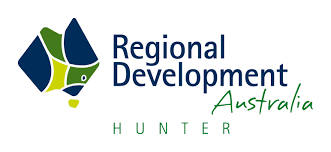Report finds LNG exports could create domestic gas shortfall
The ACCC’s July 2022 Interim gas report, released today, forecasts the east coast of Australia could face a shortfall of 56 PJ in 2023

“Our latest gas report finds that the outlook for the east coast gas market has significantly worsened. To protect energy security on the east coast we are recommending the Resources Minister initiate the first step of the Australian Domestic Gas Security Mechanism (ADGSM),” ACCC Chair Gina Cass-Gottlieb said.
“We are also strongly encouraging LNG exporters to immediately increase their supply into the market.”
Much of the gas produced in Australia’s east coast is produced by companies that are also LNG exporters.
The ACCC’s report raises concerns about the high level of market concentration, noting that LNG exporters and associates had influence over almost 90 per cent of the proven and probable (2P) reserves in the east coast in 2021 through direct interests, joint ventures and exclusivity arrangements.
The east coast of Australia is forecast to produce 1981 petajoules (PJ) of gas in 2023 of which 1299 PJ, or 65.6 per cent, is forecast to be exported overseas under long term contacts. LNG exporters are also expected to produce a further 167 PJ over what they require to meet their contractual commitments.
This excess gas is not contractually committed and could be supplied into either the domestic market or the international LNG market.
The ACCC has examined upstream competition and timeliness of supply and found that this market is highly concentrated and dominated by the three LNG exporters and their associates.
The LNG exporters influence supply through numerous joint ventures and exclusivity agreements.
Background
On 19 April 2017, the Australian Government directed the ACCC to conduct an inquiry into the supply of and demand for wholesale gas in Australia and publish regular information on the supply and pricing of gas for three years. On 25 July 2019, this inquiry was extended until December 2025.
The ACCC is required to submit interim reports at least six-monthly and provide information to the market as appropriate, with a final report by 30 December 2025.
On 6 June 2022, the Treasurer wrote to the ACCC conveying his concern about the significant increases in wholesale electricity and gas prices and setting out his expectation that the ACCC will ensure the factors influencing prices in the market are made transparent, making any appropriate policy recommendations and investigate concerns about anti-competitive and false and misleading conduct in electricity and gas markets.
Interventions
Feedback on the report has been swift, with suggested interventions to ensure gas continuity and affordability coming from several quarters.
Professor Ariel Liebman, Director, Monash Energy Institute said, "The ACCC’s conclusion is entirely unsurprising and confirms what most independent observers of the energy sector have been saying: the current governance of Australia’s natural gas production is hurting Australians and Australia's interests."
“This situation is untenable and bordering on unconscionable. If this ‘gas supply crisis’ lasts much longer Australian manufacturing reliant on natural gas is at risk as are the jobs they provide. Government must step in immediately and intervene through a combination of measures such as domestic gas reservations and a windfall profits tax,” Liebman continued.
"The solutions are, one, a domestic gas reservation policy, two, a reduction of gas demand by getting gas out of Australian households, and three, speeding up the transition to renewable energy, like solar and wind," suggests Bruce Robertson, energy analyst, Institute for Energy Economics and Financial Analysis.
"A domestic gas reservation policy on existing fields would solve any supply and price problems, just as it has in Western Australia and every other large energy producing region around."
Craig Memery, energy advisor at the Public Interest Advocacy Centre was also critical, saying, "Linking Australia's east coast gas market to international gas markets has been the single most disastrous policy decision for Australian energy users this century. It has exposed electricity users to escalating and volatile prices, and changed gas from being an affordable fuel for heating and cooking to a liability."
“I don't see how we can get out of the energy crisis this decade without government intervention in gas prices. Funding interventions is often complex, this one needn't be: simply levy a super profits tax on the businesses that have made billions of dollars exporting our natural resources."
















